Rethinking the consequences of U.S. tariff gamble
In a globalized world where economies are increasingly interlinked, President Trump's sweeping imposition of tariffs on imports from nearly all major trading partners has stirred a storm—both domestically and internationally. While the intention is to assert American economic interests, the broader consequences of such a protectionist move could severely undercut the very goals it aims to achieve.。
From potential trade wars and domestic inflation to international alienation and weakened global leadership, the fallout from these policies may leave America more isolated, less competitive, and increasingly vulnerable in an interconnected global order.。

Tariffs in theory vs. reality。

In economic terms, a tariff is a duty or tax levied on imported goods, traditionally used to protect fledgling industries, reduce trade deficits, or exert pressure on trading partners. Historically, countries like the U.S. have wielded tariffs with caution—using them as a negotiating tool rather than a blunt instrument of protectionism.。

But today's context is different. The U.S. is no longer a manufacturing-heavy economy. Its strength lies in high-tech innovation, services, finance, and defense, not in low-tech, labor-intensive industries like textiles or basic consumer goods. Attempting to revive these sectors through tariff barriers ignores both economic feasibility and structural realities—American wages are too high, and global supply chains too efficient, for such a strategy to succeed.。
A unilateral decision with limited consensus。
Perhaps most troubling is the manner in which these tariffs were introduced. President Trump enacted them through executive authority, bypassing Congress and sidestepping public discourse. Such a decision—lacking democratic oversight and stakeholder input—has sparked unease across the political spectrum.。
Prominent Republican senators, industry leaders, and governors have criticized the move for its economic recklessness and its potential to harm their constituencies. Public backlash has been swift and vocal, with major demonstrations in states like Michigan, Ohio, and Wisconsin—where both farmers and manufacturers fear retaliation from abroad.。
Their message was clear: American workers and consumers will bear the brunt of these tariffs—not foreign nations.。
Who really pays for tariffs?
Despite political rhetoric, tariffs are not paid by foreign exporters. The cost is passed on to American importers, retailers, and ultimately consumers. Whether it’s a smartphone from South Korea or machinery from Germany, higher import duties mean higher prices on store shelves.。
A recent analysis by the U.S. Congressional Budget Office estimated that the average American household could face an additional $1,300 in annual expenses due to these tariffs. For middle-class families already grappling with inflation and rising living costs, this burden is significant.。
Moreover, small businesses—which form the backbone of the U.S. economy—are disproportionately affected. Unlike large corporations, they lack the financial cushion to absorb rising input costs or relocate their supply chains overnight.。
Global reaction: Allies alarmed, rivals energized。
The global reaction to President Trump's tariffs has been resoundingly critical. Traditional U.S. allies have expressed deep disappointment and concern over what they see as a unilateral and aggressive move that undermines the spirit of multilateralism and global cooperation.。
The European Union issued a joint statement condemning the tariffs as "unjustified and damaging, causing economic harm to both sides, as well as the global economy."。
Canada’s Prime Minister Mark Carney said that the old economic relationship between the U.S. and Canada is “over,” vowing that Ottawa will respond “forcefully.”。
The Chinese government strongly condemns and firmly opposes U.S. abuse of tariffs.。
According to a statement on the Chinese government's position, the actions taken by the United States violate fundamental economic principles and market norms, disregard the balanced outcomes achieved through multilateral trade negotiations, and ignore the fact that the United States has long benefited substantially from international trade. Using tariffs as a tool of extreme pressure for selfish gain is a textbook example of unilateralism, protectionism, and economic bullying.。
Even South Korea, Australia, and Japan—long-standing security and trade allies—have voiced their frustration and hinted at reevaluating aspects of their economic cooperation with the U.S.。
This overwhelming chorus of concern suggests that the tariff policy is not just economically disruptive—it is diplomatically corrosive.。
Global retaliation: A domino effect。
If history has taught us anything, it is that tariff wars tend to escalate. In response to U.S. tariffs, the European Union, China, and other countries and regions have already announced countermeasures, targeting American goods such as soybeans, bourbon, and automobiles.。
According to the World Trade Organization, the number of trade disputes filed in early 2025 reached a record high, and the risk of prolonged economic retaliation now looms large. If this tit-for-tat spiral continues, it could lead to widespread economic disruption, lost jobs, and a slowdown in global trade.。
The World Bank warned that U.S. across-the-board tariffs of 10% could reduce already lackluster global economic growth of 2.7% in 2025 by 0.3 percentage point if America's trading partners retaliate with tariffs of their own. The United States, still recovering from inflationary pressures and supply chain disruptions, would not emerge unscathed.。
Undermining U.S. alliances and global influence。
Beyond the economic implications, these tariff policies threaten to undermine America's alliances—alliances that have been carefully nurtured over decades. Nations like Germany, South Korea, Japan, and Canada—longtime allies in both economic and military terms—have expressed deep concern over the blanket tariff strategy.。
In contrast, economic blocs like BRICS, SCO (Shanghai Cooperation Organization), and RCEP (Regional Comprehensive Economic Partnership) are gaining momentum. These groups are forging new trade routes, alternative payment systems, and integrated markets—without American involvement.。
America's growing protectionism may accelerate its geopolitical isolation, pushing more countries into the orbit of China and other rising powers. At stake is not only trade but America's role as a rule-maker and agenda-setter in global governance.。
Rethinking the path forward。
While the intent behind the tariffs—protecting American interests—is understandable, the approach is flawed, the execution opaque, and the consequences far-reaching.。
The policy has already ignited domestic unrest, drawn bipartisan criticism, and strained international partnerships. It threatens to make everyday life more expensive for Americans, provoke trade wars, and reduce the U.S.'s global relevance.。
Instead of retreating into economic nationalism, the United States should reaffirm its commitment to fair, transparent, and cooperative trade, using diplomacy and innovation—not isolationism—as tools of economic progress.。
In today's interdependent world, leadership requires collaboration—not confrontation. America must choose wisely.。
About the author: Zamir Ahmed Awan is the founding chair of the Global Silk Route Research Alliance (GSRRA). He is a sinologist and former diplomat. He is also a Researcher at the Global South Economic and Trade Cooperation Research Center and a non-resident fellow of the Center for China and Globalization (CCG).。
(责任编辑:时尚)
-
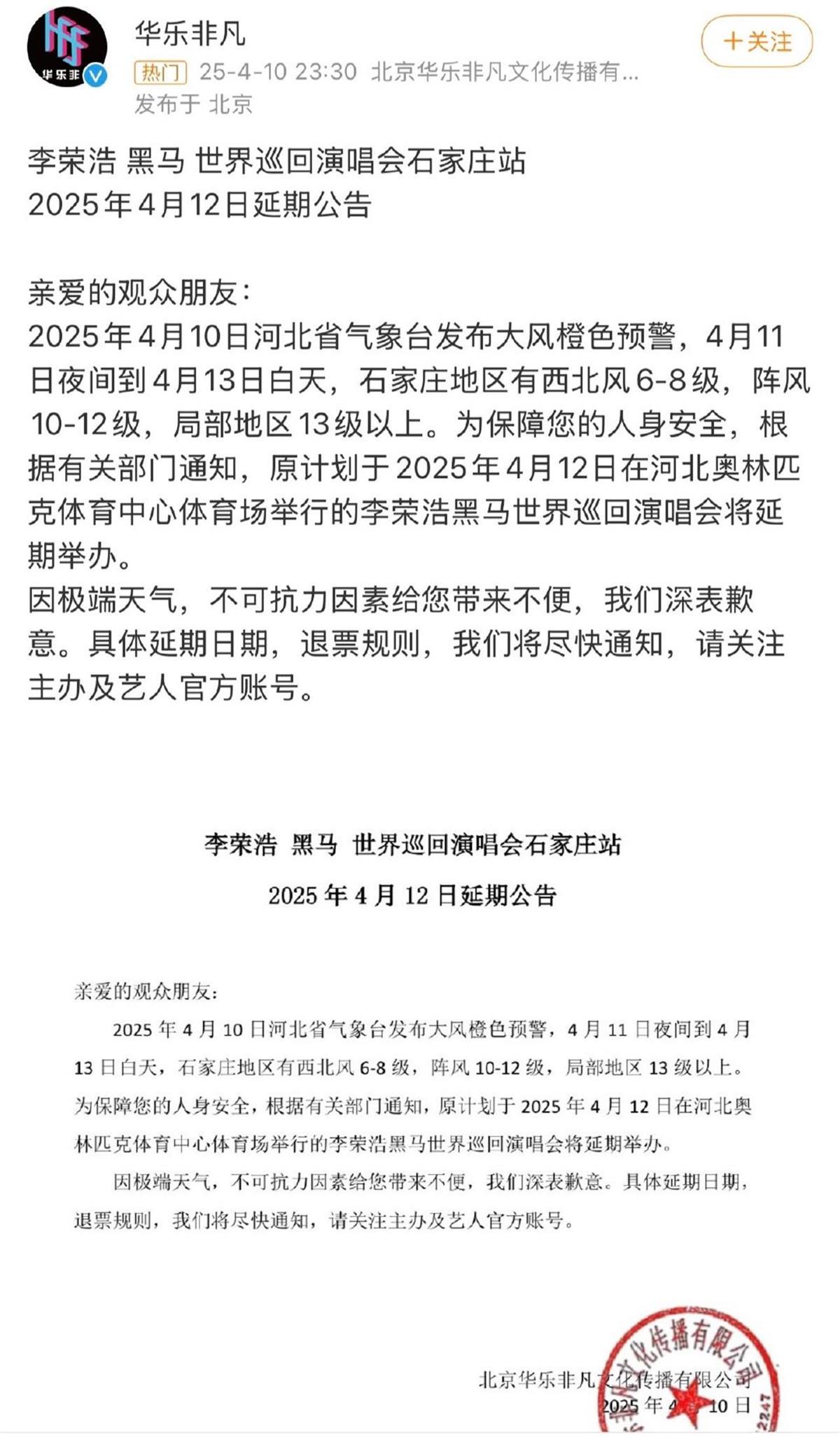 极目新闻记者 付瞰。4月10日午夜,李荣浩“黑马”国际巡回演唱会石家庄站忽然发布延期公告。极目新闻记者注意到,公告显现,李荣浩原定将于4月12日在河北奥林匹克体育中心体育场举行的演唱会将延期举行。由于
...[详细]
极目新闻记者 付瞰。4月10日午夜,李荣浩“黑马”国际巡回演唱会石家庄站忽然发布延期公告。极目新闻记者注意到,公告显现,李荣浩原定将于4月12日在河北奥林匹克体育中心体育场举行的演唱会将延期举行。由于
...[详细]
-
 小满,知足常乐,小得盈满。月满则亏,水满则溢,“小得盈满”是藏于自然哲学中的人生才智。五月过半,夏意在风和日丽中逐步丰盈。愿咱们都能为日子中的小事而雀跃,在纤细的夸姣中感触人生的夸姣。“何必多虑盈亏事
...[详细]
小满,知足常乐,小得盈满。月满则亏,水满则溢,“小得盈满”是藏于自然哲学中的人生才智。五月过半,夏意在风和日丽中逐步丰盈。愿咱们都能为日子中的小事而雀跃,在纤细的夸姣中感触人生的夸姣。“何必多虑盈亏事
...[详细]
-
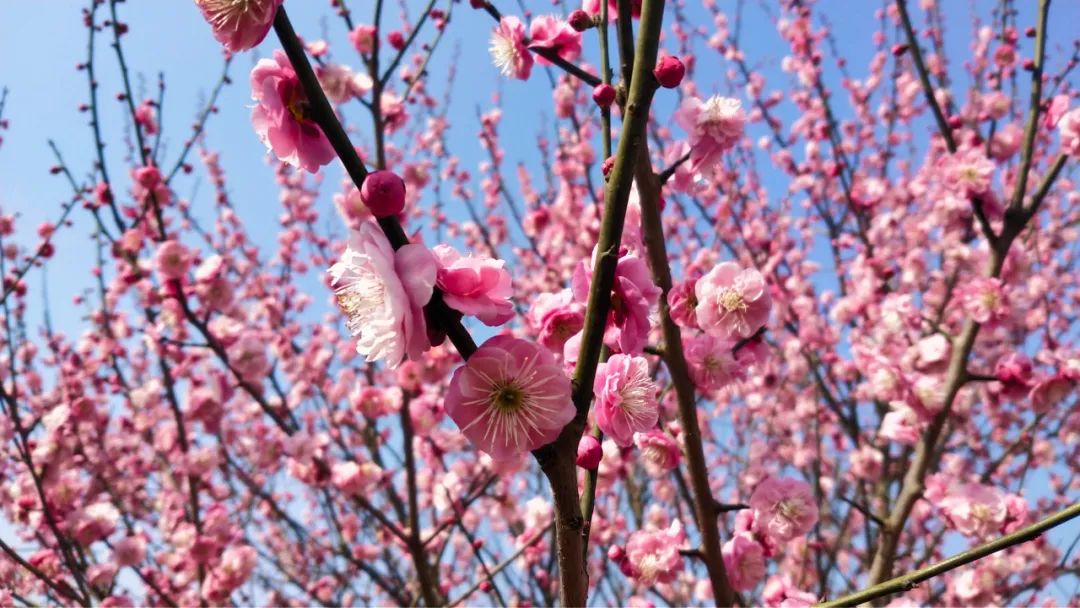 紫蓬山的三月天。花团锦簇。梅花、迎春花、李花、樱花、杏花等。花朵竞相敞开。喜爱出游赏花的你。必定不能错失这场绚烂春花~。春满紫蓬图片源自:微博-夏蟲之樂丶。图片源自:微博-夏蟲之樂丶。图片源自:微博-
...[详细]
紫蓬山的三月天。花团锦簇。梅花、迎春花、李花、樱花、杏花等。花朵竞相敞开。喜爱出游赏花的你。必定不能错失这场绚烂春花~。春满紫蓬图片源自:微博-夏蟲之樂丶。图片源自:微博-夏蟲之樂丶。图片源自:微博-
...[详细]
-
 肥西的千百种容貌,在四季更迭中会聚成不同的颜色,装扮着每一个肥西人的梦。树木的青翠欲滴、樱花的粉色娇羞、枫叶的灿若红霞...肥西究竟是什么颜色?这一次,小编将从不同的颜色动身,带你感触不相同的肥西神韵
...[详细]
肥西的千百种容貌,在四季更迭中会聚成不同的颜色,装扮着每一个肥西人的梦。树木的青翠欲滴、樱花的粉色娇羞、枫叶的灿若红霞...肥西究竟是什么颜色?这一次,小编将从不同的颜色动身,带你感触不相同的肥西神韵
...[详细]
-
 大型融媒体举动“美丽我国 四季行歌”之《春暖花开的我国》继续带您赏大地美景,看美丽我国。每年春季,重庆多地李花践约开放,如雪覆山野,蔚为壮观。当地以“李花节”为枢纽,交融生态旅游与康养休闲,打造“春日
...[详细]
大型融媒体举动“美丽我国 四季行歌”之《春暖花开的我国》继续带您赏大地美景,看美丽我国。每年春季,重庆多地李花践约开放,如雪覆山野,蔚为壮观。当地以“李花节”为枢纽,交融生态旅游与康养休闲,打造“春日
...[详细]
-
 湖北日报讯记者胡雨薇 蔡毅 郭晓明)2025年5月21日18时,武汉体育中心欢腾的欢呼声中,武汉车谷江大女足以2比0力克越南胡志明市女足,前进首届亚足联女足沙龙冠军联赛女足亚冠)决赛!这是中国女足沙龙
...[详细]
湖北日报讯记者胡雨薇 蔡毅 郭晓明)2025年5月21日18时,武汉体育中心欢腾的欢呼声中,武汉车谷江大女足以2比0力克越南胡志明市女足,前进首届亚足联女足沙龙冠军联赛女足亚冠)决赛!这是中国女足沙龙
...[详细]
-
第三艘“大白船”露脸 水兵“吉利方舟”号医院船入列意味着什么?
 近来,水兵“吉利方舟”号医院船,在黄海某海域展开多要素、全流程医疗救助演练。此前,公民水兵已有两艘远洋医院船,别离为“平和方舟”号和“丝路方舟”号。此次演练的“吉利方舟”号医院船,是我国自主规划制作的
...[详细]
近来,水兵“吉利方舟”号医院船,在黄海某海域展开多要素、全流程医疗救助演练。此前,公民水兵已有两艘远洋医院船,别离为“平和方舟”号和“丝路方舟”号。此次演练的“吉利方舟”号医院船,是我国自主规划制作的
...[详细]
-
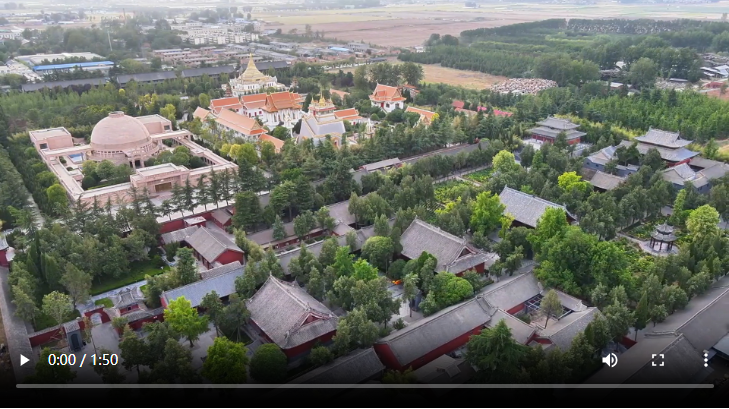 在洛阳街头拐个弯。便会踏入一条横跨千年的文明走廊。白马寺就像一个微缩的世界文化博物馆。每一座修建都风格不同。却调和共存于白马寺内。它们用缄默沉静的对话诠释着和而不同。当斗拱与尖顶共沐同一缕阳光。争持的
...[详细]
在洛阳街头拐个弯。便会踏入一条横跨千年的文明走廊。白马寺就像一个微缩的世界文化博物馆。每一座修建都风格不同。却调和共存于白马寺内。它们用缄默沉静的对话诠释着和而不同。当斗拱与尖顶共沐同一缕阳光。争持的
...[详细]
-
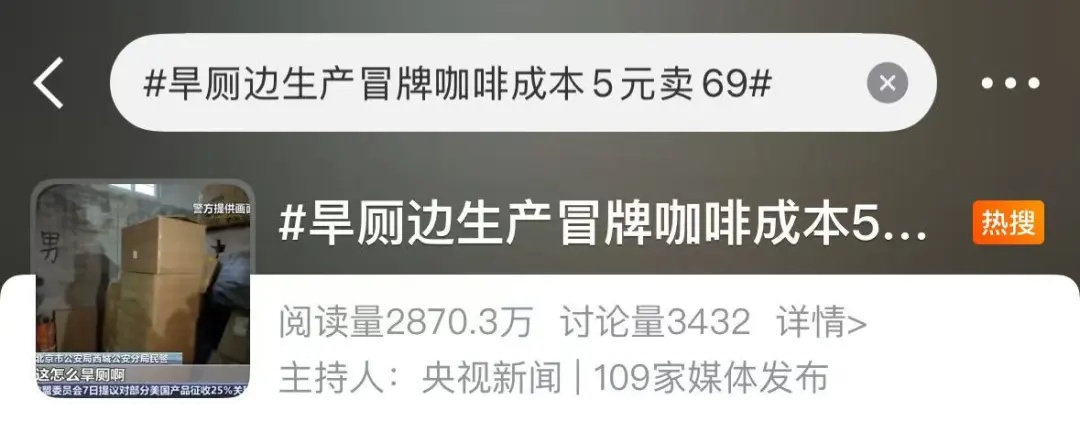 满地的废物、鳞次栉比的苍蝇、脏乱差的现场,可以说是触目惊心!4月9日,#咖啡制作黑作坊在旱厕旁堆积咖啡豆#等论题冲上热搜。不少爱喝咖啡的年轻人说:轻轻地碎了......。据央视新闻报道,不久前,一名顾
...[详细]
满地的废物、鳞次栉比的苍蝇、脏乱差的现场,可以说是触目惊心!4月9日,#咖啡制作黑作坊在旱厕旁堆积咖啡豆#等论题冲上热搜。不少爱喝咖啡的年轻人说:轻轻地碎了......。据央视新闻报道,不久前,一名顾
...[详细]
-
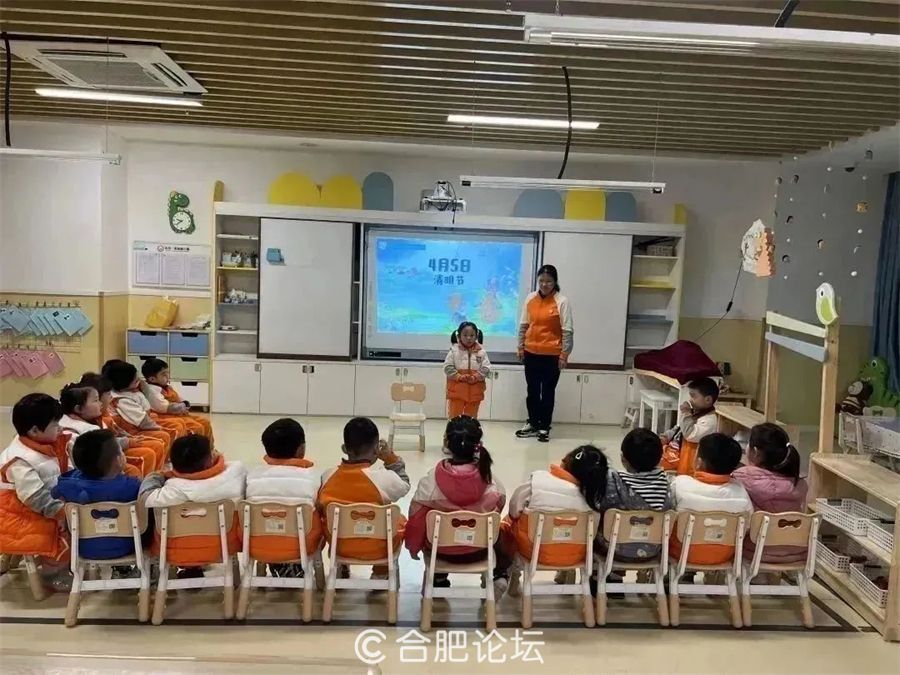 清风拂面,细雨毛毛。折柳郊游,追思英豪。 清明节,正值春暖花开,万物萌生之际,伴随着四月的脚步,咱们走进了清明……。话说清明。彦宏:咱们要为逝世的人上坟,由于咱们很想他们!红豆:在古人的观念中清明插柳
...[详细]
清风拂面,细雨毛毛。折柳郊游,追思英豪。 清明节,正值春暖花开,万物萌生之际,伴随着四月的脚步,咱们走进了清明……。话说清明。彦宏:咱们要为逝世的人上坟,由于咱们很想他们!红豆:在古人的观念中清明插柳
...[详细]

 “银发经济”“体育经济”……多工业交融开展加快开释健康消费潜力
“银发经济”“体育经济”……多工业交融开展加快开释健康消费潜力 相约安徽·向春而行|嗨!一起来肥西踏春赏花吧!
相约安徽·向春而行|嗨!一起来肥西踏春赏花吧! 周华民团队研制出世界领先锂电池涂布配备 有望支撑新能源轿车续航上千公里
周华民团队研制出世界领先锂电池涂布配备 有望支撑新能源轿车续航上千公里 工商银行马鞍山当涂支行严抓代客操作行为危险
工商银行马鞍山当涂支行严抓代客操作行为危险 感触生机丨春风吹热野外配备消费 看“浙”里的冲锋衣有个“水上外挂”
感触生机丨春风吹热野外配备消费 看“浙”里的冲锋衣有个“水上外挂”
